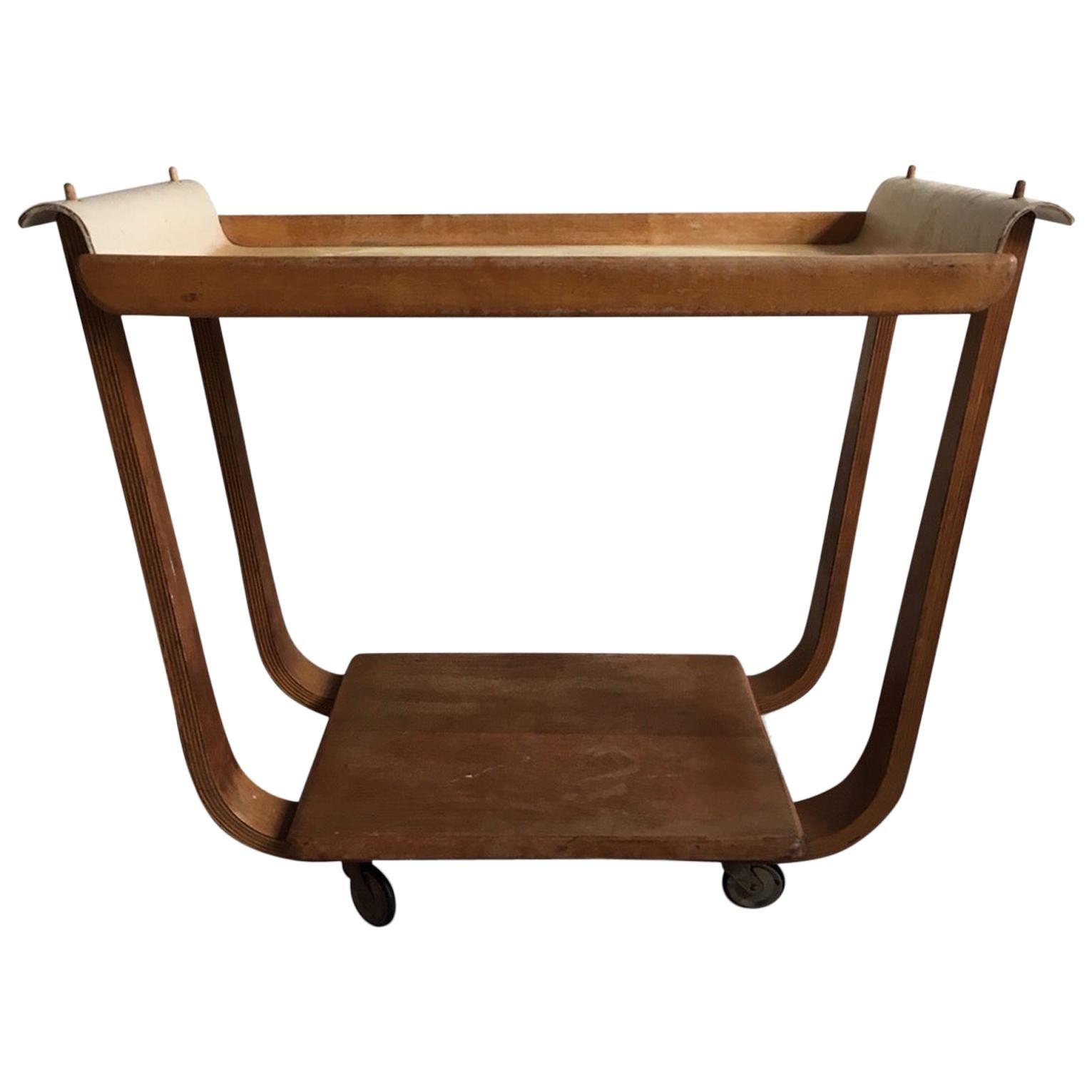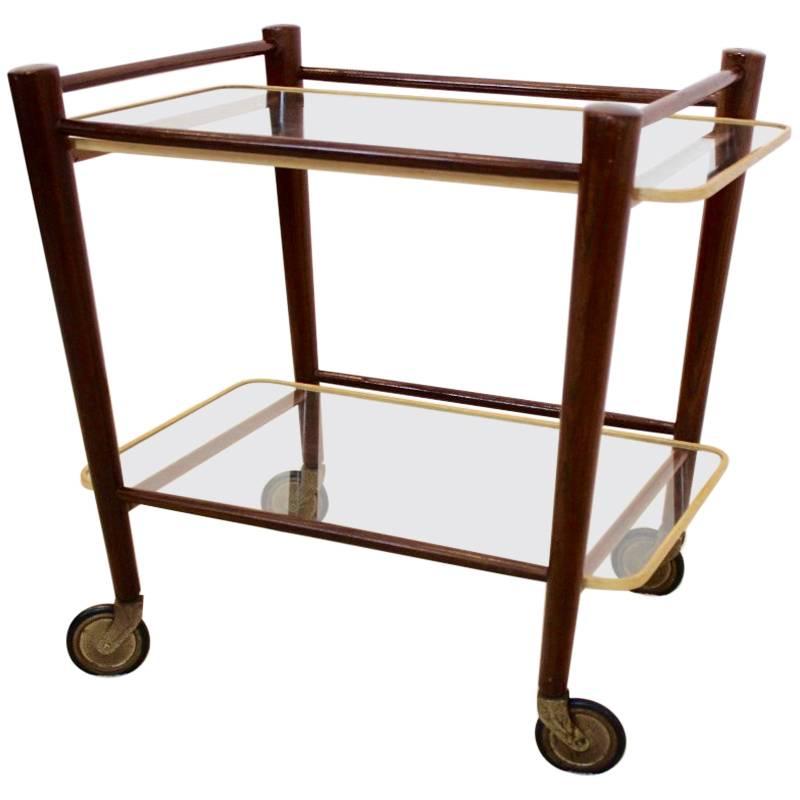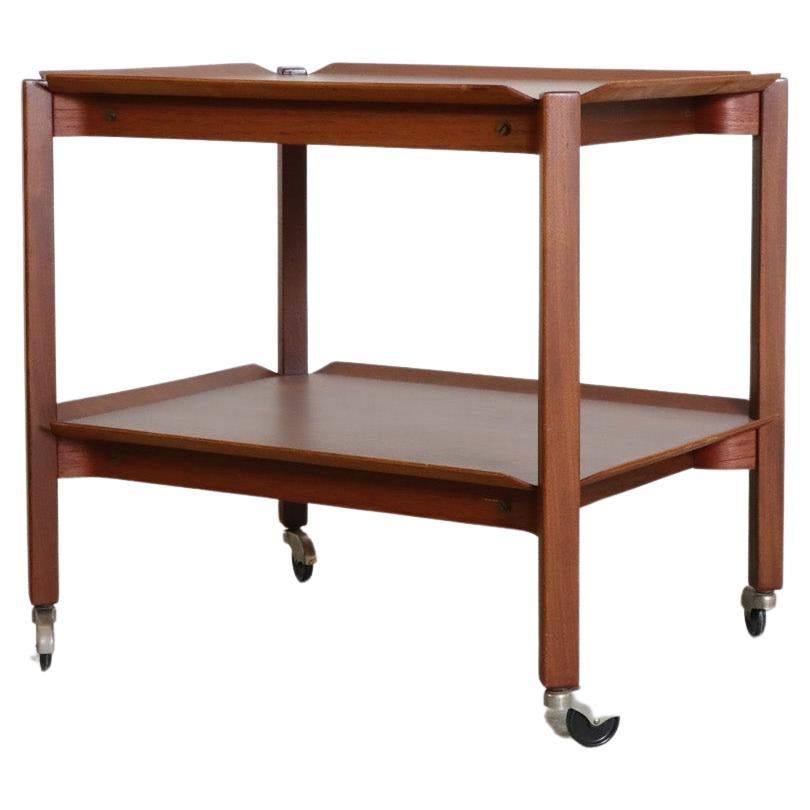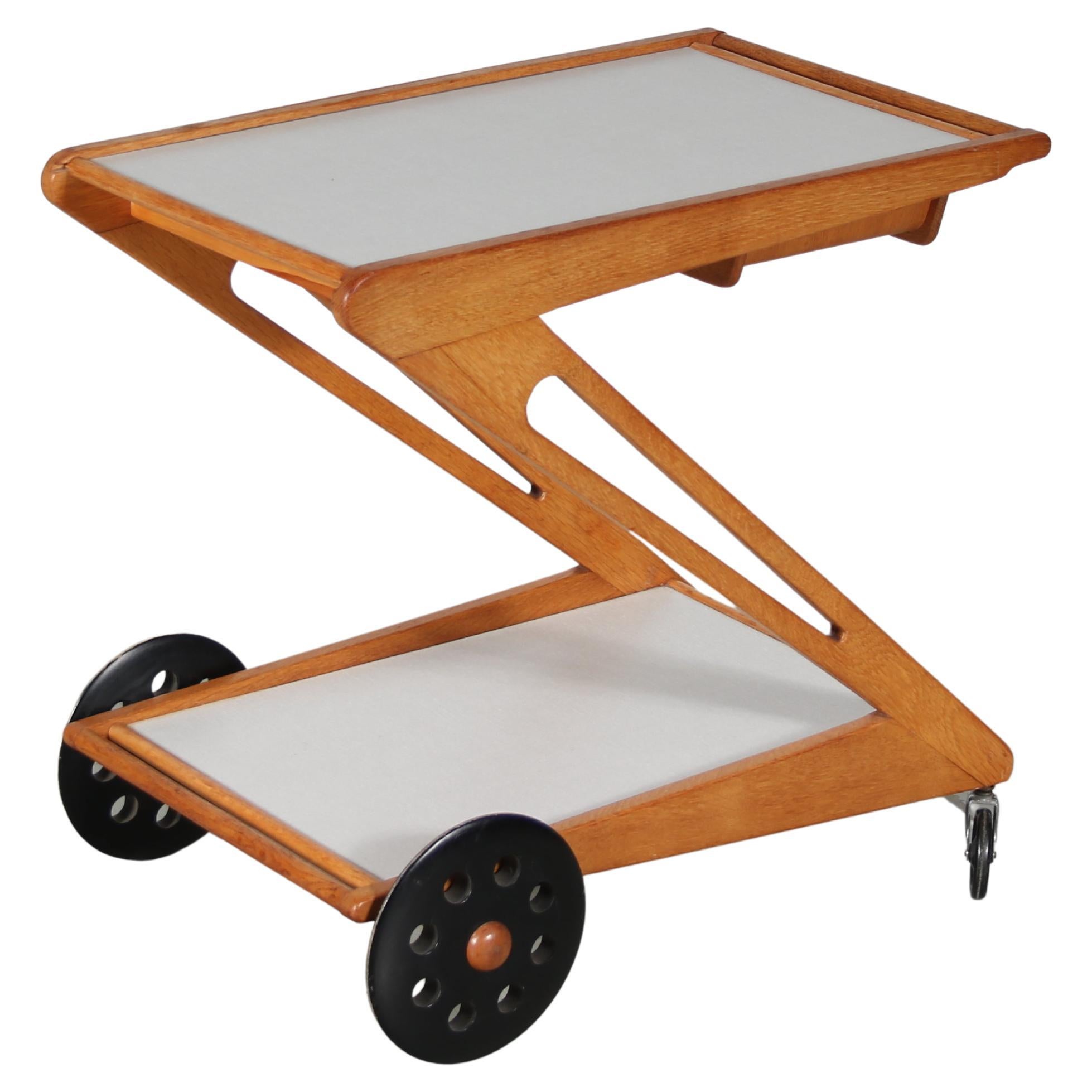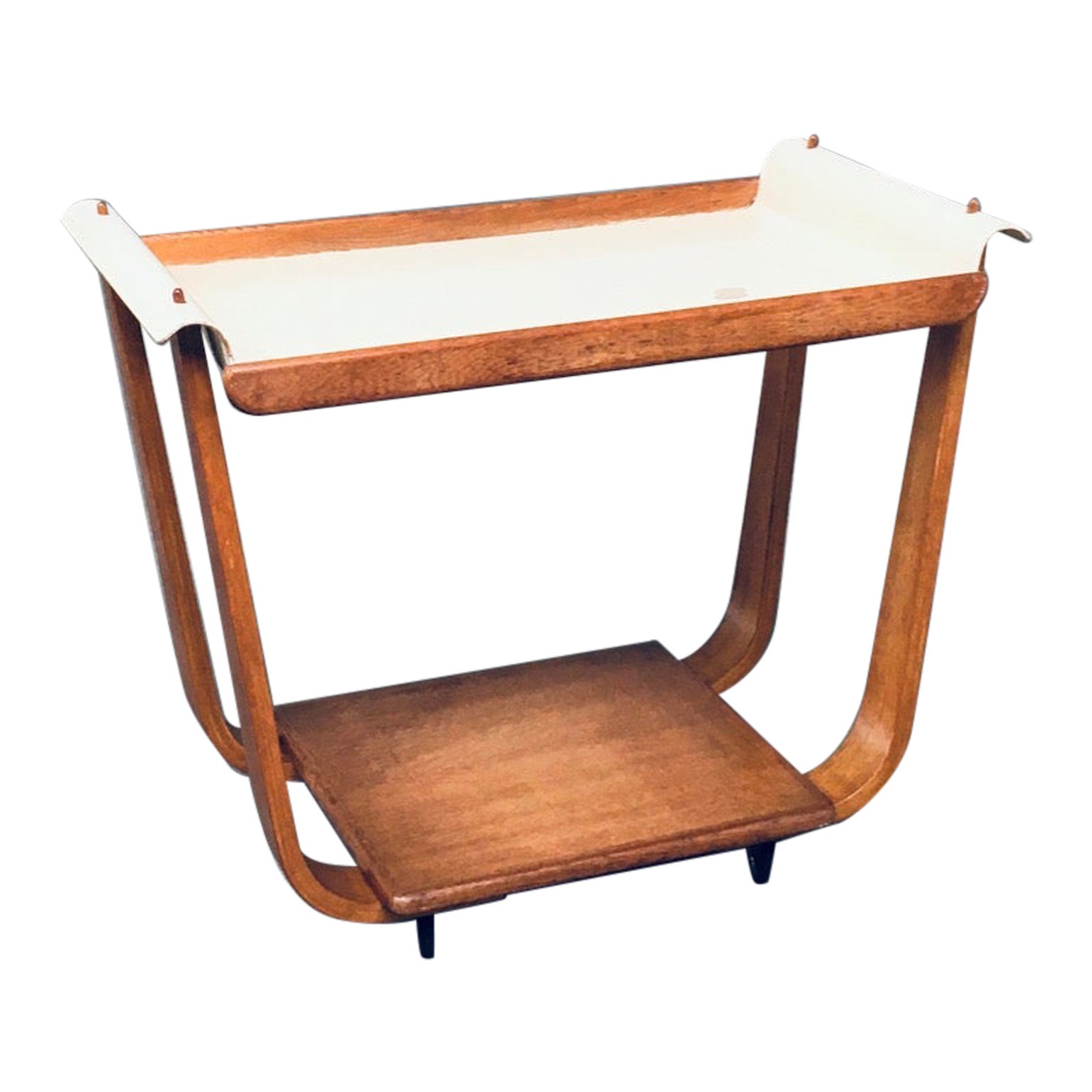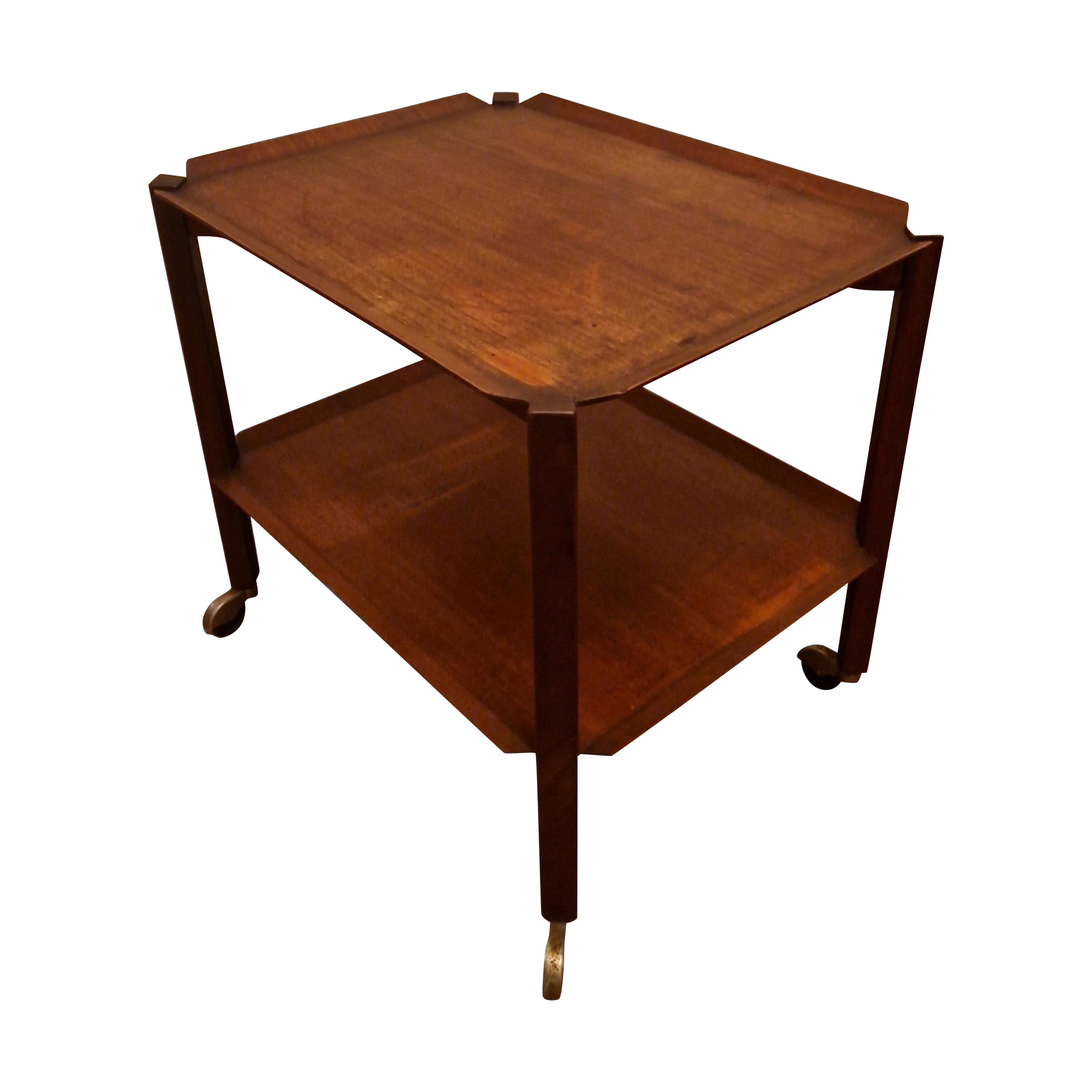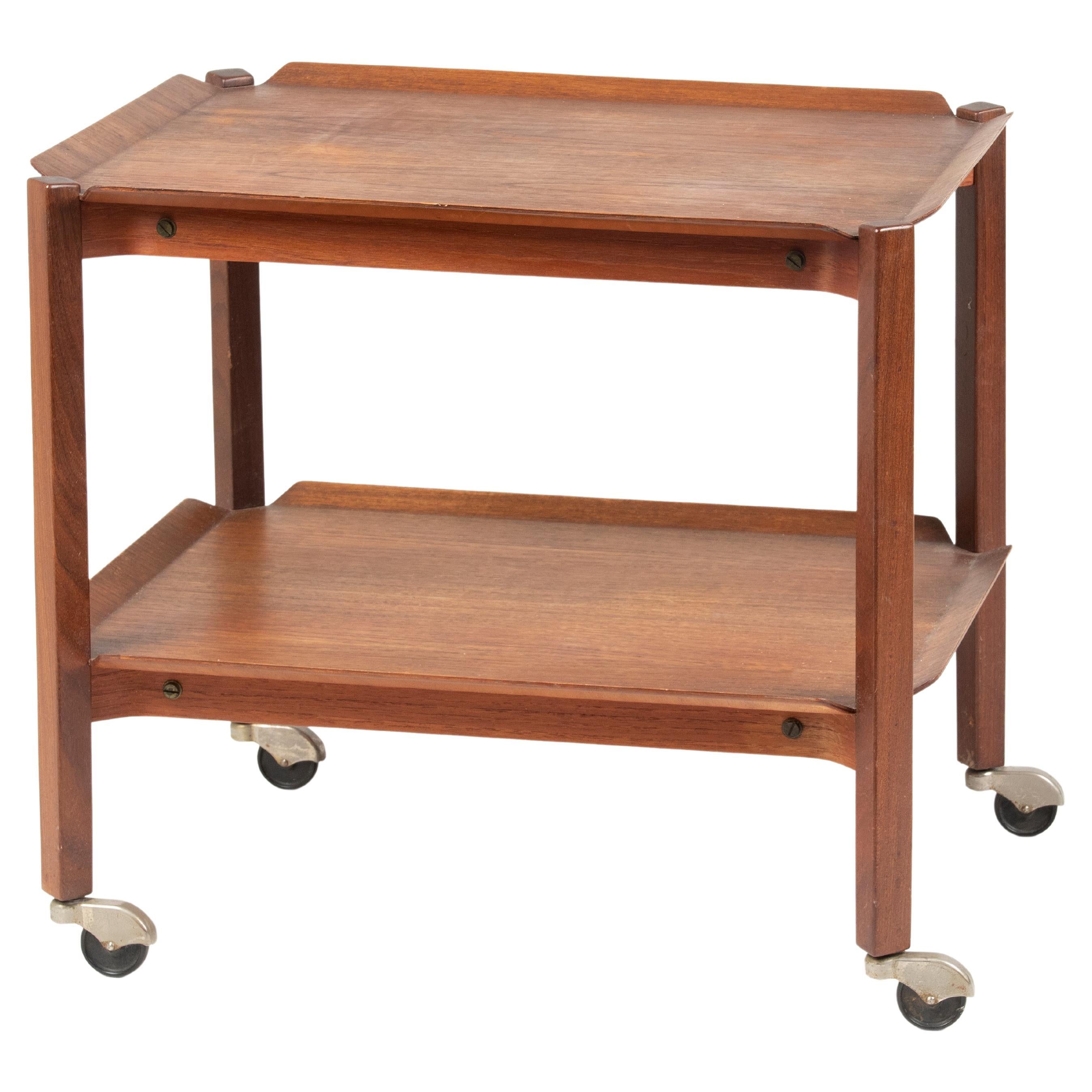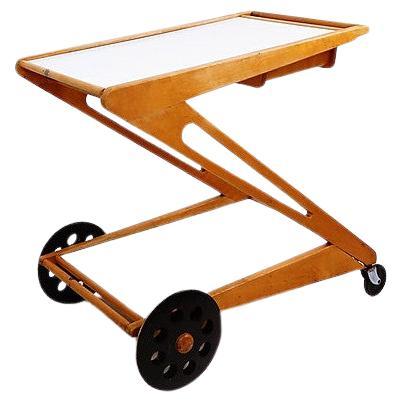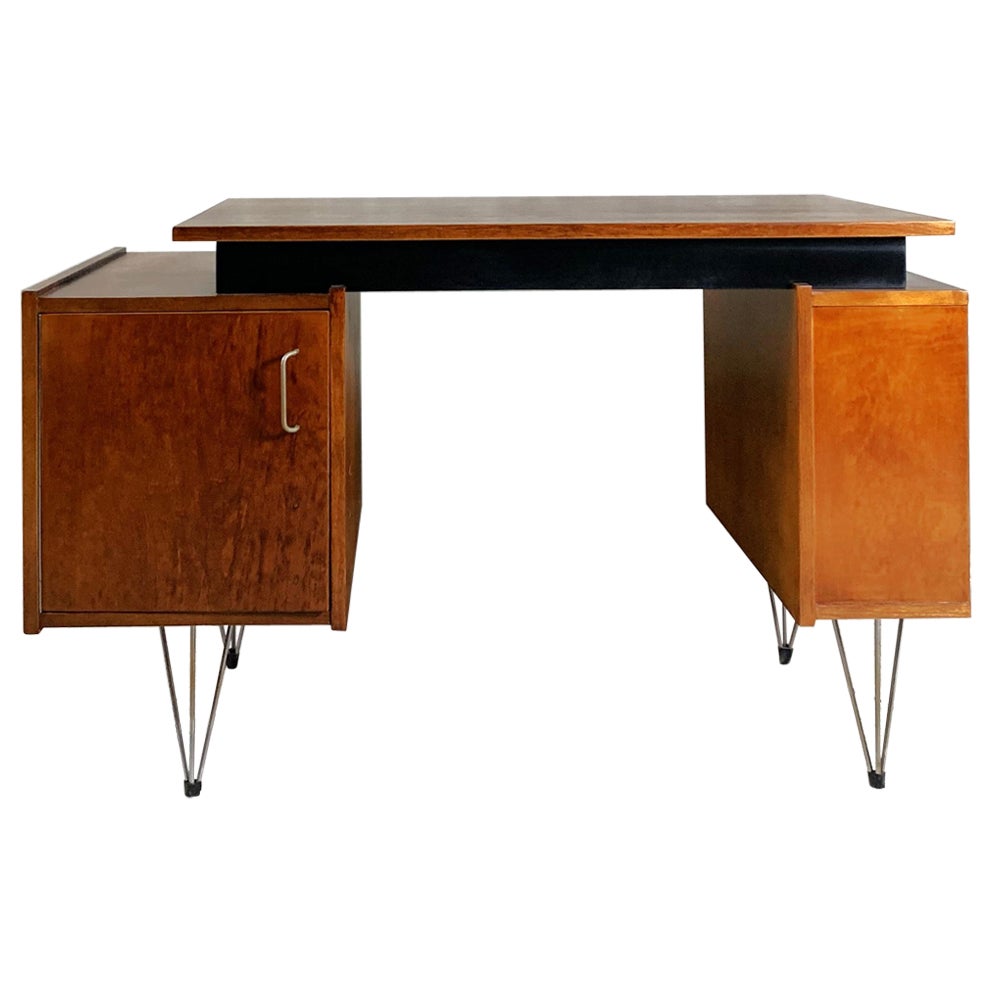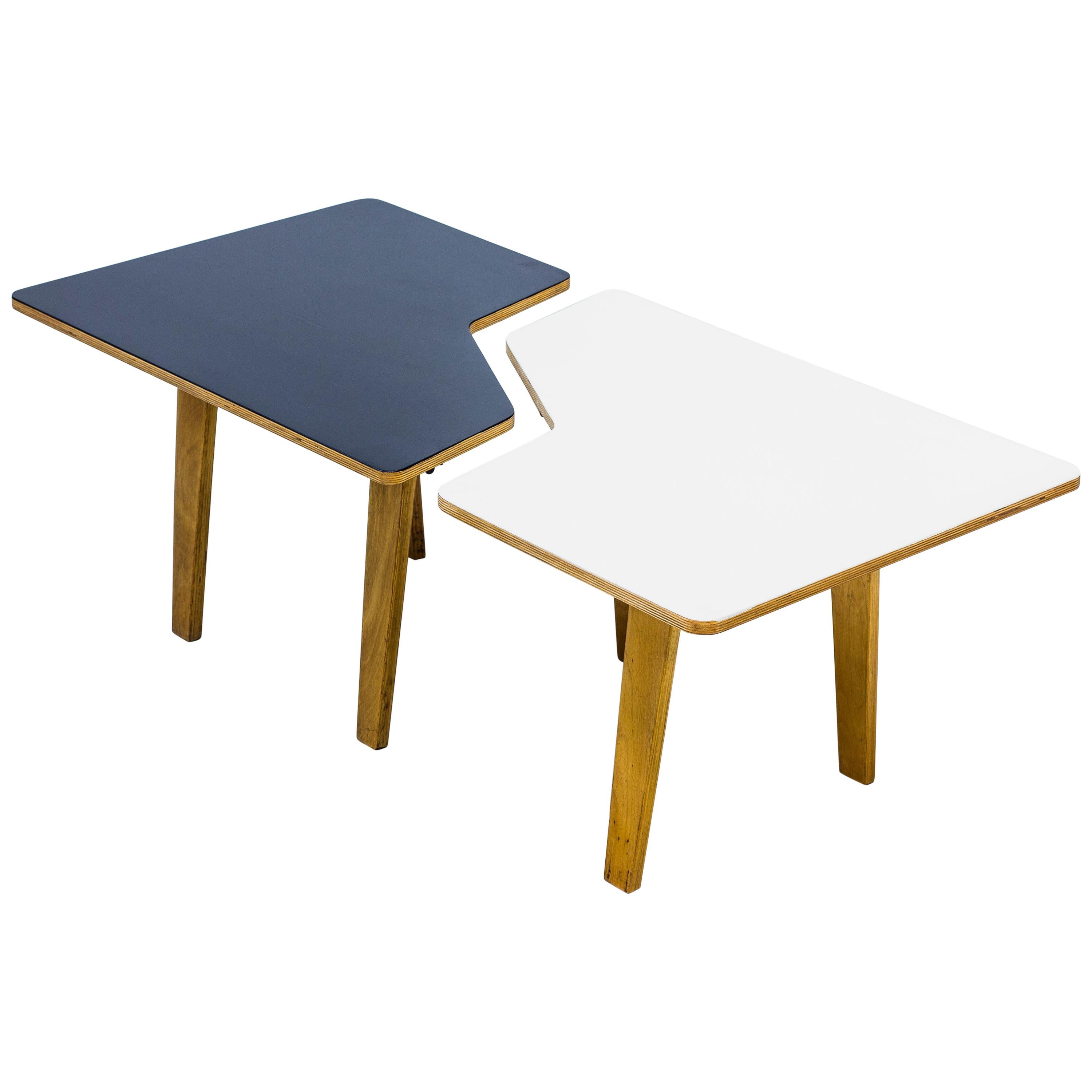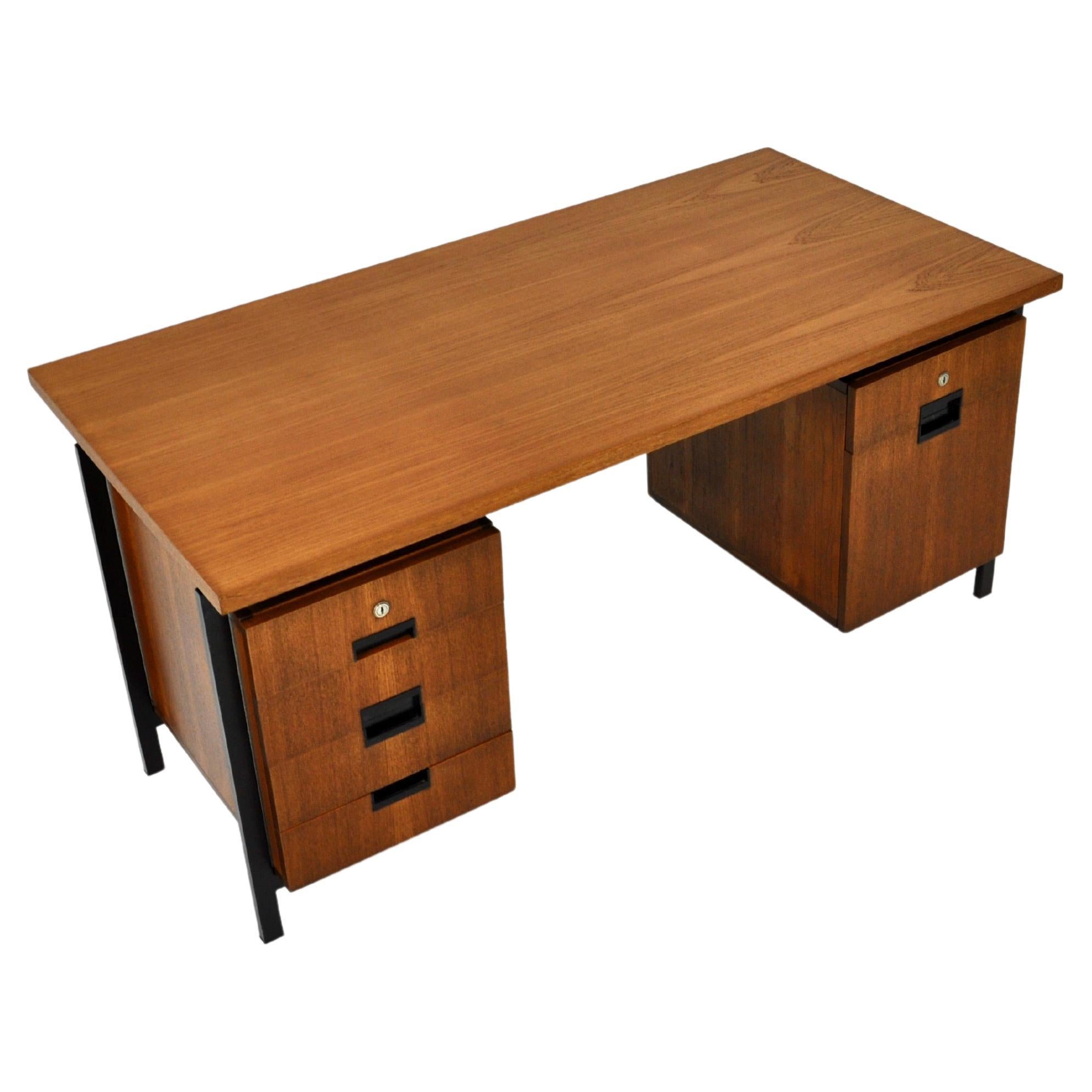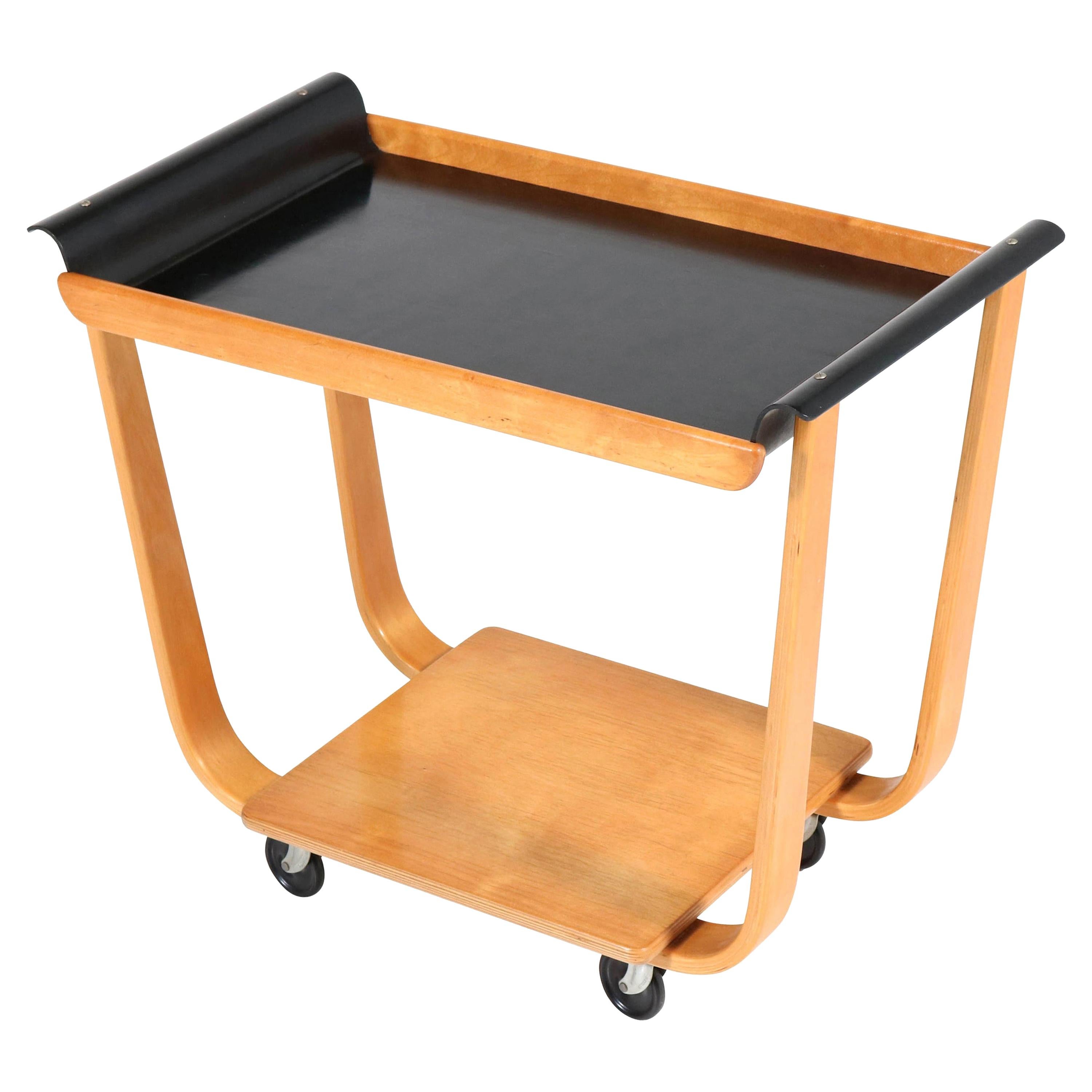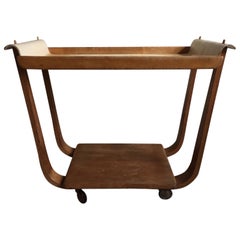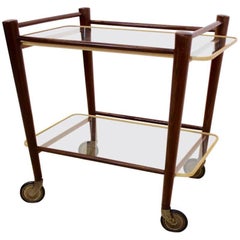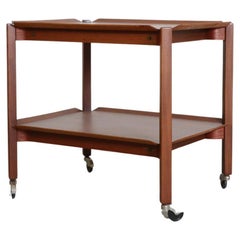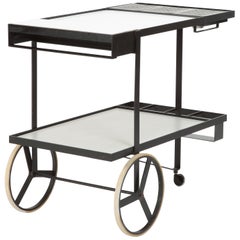
Cees Braakman Bar Cart Pastoe, 1950s
View Similar Items
1 of 15
Cees Braakman Bar Cart Pastoe, 1950s
About the Item
- Creator:Cees Braakman (Designer),Pastoe (Manufacturer)
- Dimensions:Height: 26.19 in (66.5 cm)Width: 18.12 in (46 cm)Depth: 29.53 in (75 cm)
- Style:Mid-Century Modern (Of the Period)
- Materials and Techniques:
- Place of Origin:
- Period:
- Date of Manufacture:1950
- Condition:Wear consistent with age and use. Shows signs of age and use.
- Seller Location:Basel, CH
- Reference Number:Seller: 040811stDibs: LU1042213009212
You May Also Like
- Cees Braakman Trolley, Serving Cart, UMS Pastoe, 1950sBy Cees Braakman, PastoeLocated in Schagen, NLVery nice design (Tea) trolley by Cees Braakman for Pastoe in the 1950s. It shows cosmetic wear but no structural issues, cracks or instability. Its tray can be removed. Signed piece!Category
Mid-20th Century Dutch Mid-Century Modern Serving Tables
MaterialsPlywood
- Elegant Serving Trolley by Cees Braakman for Pastoe, Netherlands, 1950sBy Cees Braakman, PastoeLocated in Voorburg, NLBeautiful serving trolley in totally original state. Designed by Cees Braakman and produced by UMS Pastoe. The trolley has a solid teak frame and glass plates with original rubber pr...Category
Mid-20th Century Dutch Mid-Century Modern Carts and Bar Carts
MaterialsGlass, Teak
- Mid-Century Pastoe Teak Rolling Cart by Cees BraakmanBy Cees Braakman, PastoeLocated in Los Angeles, CAMid-Century 2 tiered teak rolling cart designed by Dutch post-war icon Cees Braakman for Pastoe. Beautiful and delicate teak trays with upturned edge...Category
Vintage 1960s Dutch Mid-Century Modern Carts and Bar Carts
MaterialsTeak
- Cees Braakman “Mobilo PE03” Trolley for Pastoe, Netherlands, 1950By Cees Braakman, PastoeLocated in Amsterdam, NLThe “Mobilo PE03” trolley was designed by Cees Braakman and manufactured by Pastoe in the Netherlands around 1950. It features a birch frame with white laminated shelves and a han...Category
Vintage 1950s Dutch Carts and Bar Carts
MaterialsWood
- 1950's "ROLO" PB31 Tea Trolley by Cees Braakman for PastoeBy Cees Braakman, PastoeLocated in Oud-Turnhout, VANVintage Midcentury Modern Dutch Design "ROLO" Tea Trolley by Cees Braakman for UMS Pastoe Utrecht. Model PB31. Made in the Netherlands / Holland, 1950's period. Birch plywood constru...Category
Vintage 1950s Dutch Mid-Century Modern Carts and Bar Carts
MaterialsBirch, Plywood
- Mid century PT10 serving cart by Cees Brakeman for Pastoe, Netherlands 1950sBy Cees Braakman, PastoeLocated in ECHT, NLMid century serving cart. Model PT10 designed by Cees Brakeman for Pastoe in the 1950s. It has two trays made of shaped plywood. The frame is also made of plywood. Well designed piece with very nice details. It stands on the original castors. The cart can be disassembled. It was sold originally as flat packed furniture. For shipping it will be disassembled for safer and easier transport. Easy to put back together again with the original brass bolts. The wood gained a beautiful dark patina through the years. UMS Pastoe b.v. is a Dutch furniture manufacturer from Utrecht, which designs and produces furniture under the Pastoe brand name. This company was founded on April 13, 1913 in Utrecht as UMS, which stood for Utrechtse Machinale Stoel- en Meubelfabriek. The name Pastoe comes from "passe partout" and was added to the name after the Second World War Well-known designs are the wire steel chair SM05 by Cees Braakman and Adriaan Dekker, the cabinets by Aldo van den Nieuwelaar and Vision by Karel Boonzaaijer and Pierre Mazairac. Pastoe has worked with graphic designers such as Dick Bruna and Benno Premsela, photographers such as Ed van der Elsken and Cas Oorthuys and designers such as Shiro Kuramata, Shigeru Uchida, Maarten Van Severen and Vincent van Duysen. Frits Loeb founded the factory in 1913 under the name Utrechtse Machinale Stoel- en Meubelfabriek (UMS). This was located at Oosterkade 30 in Utrecht. The furniture that was produced was initially intended for his store at the Ganzenmarkt in Utrecht, but soon it was sold at various points of sale in the Netherlands. When the space on the Oosterkade had become too small, the factory moved around 1918 to the building of the former Tegelfabriek 'Holland' on the Rotsoord. Since 2016, the factory has been on the Tugboat in Houten. UMS focused on the general public with its furniture. Business manager and designer Dirk Lubertus Braakman varied on the designs of the Amsterdam school. Although the business design style did not suit the taste of the general public, UMS continued to engage in innovative design, with influences from Scandinavia and art deco. After World War II After the Second World War, Loeb found an empty factory. He decided to rebuild UMS, with his cousin Frits Ullman assisting him. In the first years after the war, UMS mainly worked on behalf of third parties and did not yet have a permanent collection. Around 1947, the factory set a different course, with contemporary design central. In 1948, the new brand name Pastoe was introduced, which was added to the abbreviation UMS. Business manager and designer Cees Braakman, after a study trip through the United States, introduced a new technique of curved plywood and persuaded Loeb and Ullman to use this production method. Due to the use of this new technique, no more reference was made to the craft. New materials such as plywood finished with oak and birch veneer characterized the designs. The new production technique provided the subdued and sober design that later became the company's trademark. UMS Pastoe joined the Good Living Foundation. The focus of the UMS Pastoe collection was mountain furniture, where the consumer could put together a cabinet himself. This new concept of flexible cabinet systems was developed in 1955 in the cabinet system Meubelen-naar-maat. In this series, the cabinet could not only be assembled by the consumer himself, but also expanded later. This series was a great success at home and abroad. This became clear when the teak version was awarded a silver medal in 1957 at the 11th Triennale in Milan and Le Signe d'Or in Belgium. In 1968, the company received the BKI Award for the innovation of PVC-coated chipboard that is milled transversely; the plates could then be folded into a cube. This technique was applied in the 1967 Pastoe Cube...Category
Mid-20th Century Dutch Mid-Century Modern Carts and Bar Carts
MaterialsPlywood
